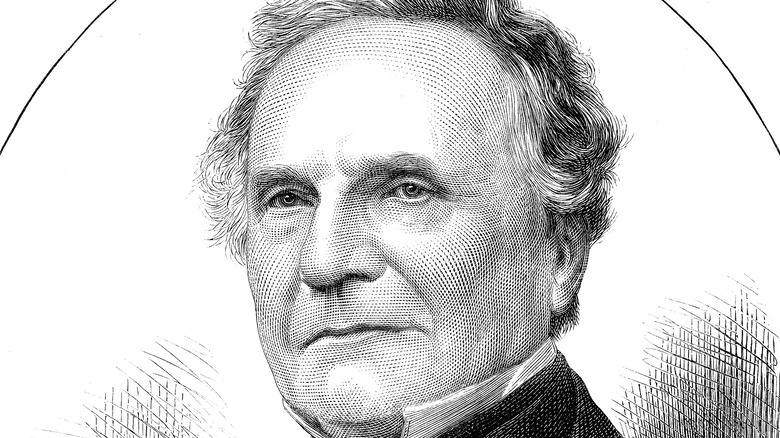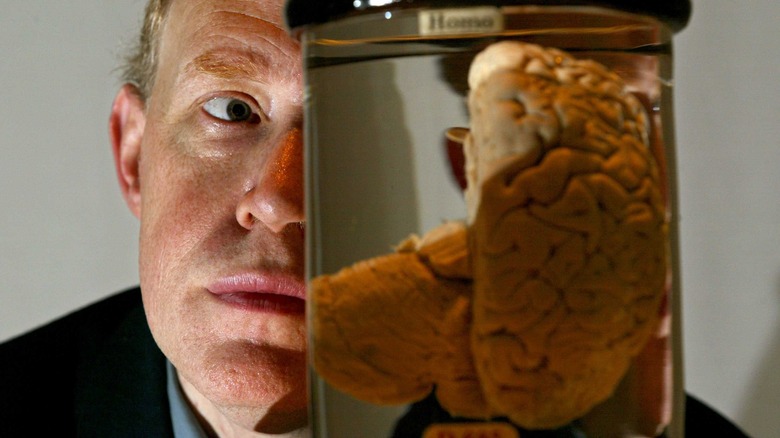Here's Where You Can Find Charles Babbage's Brain Today
If you're reading this article on a laptop or some other kind of mobile device, that's thanks, in no small part, to Charles Babbage, a Victorian scientist credited with the development of the personal computer, among many other inventions taken for granted today. According to Computer History, Babbage was born in 1791 and died in 1871. To accomplish what Babbage did during his lifetime must have taken a pretty big brain. That brain still exists.
In addition to early innovations in the field of computer science, Babbage also dabbled in lighthouse signaling, and suggested the equivalent to the "black box recorder" for railway accidents. The first Babbage computational computers were primitive, mechanical machines, but they did lay the groundwork for the modern computer.
Babbage was a known eccentric and pretty famous in his day, per Computer History. Perhaps unsurprisingly, then, he had a somewhat unusual request for what should happen to his brain after he died.
In a museum
Studying or preserving the human brain is nothing new. Many scientific and medical advances have come about because of the practice. That's exactly how Charles Babbage wanted his brain to be handled after his death. According to Wired, an early pioneer in saving brains after people die was Frederik Ruysch, who died in 1731. In grotesque fashion, though, Ruysch mostly made displays from this collection. Babbage, on the other hand, wanted to make sure his brain was donated to science.
And that's exactly what happened. To this day, one half of Charles Babbage's brain (above) is on hand at the Hunterian Museum in the Royal College of Surgeons, and the other half is able to be viewed at the Science Museum, both in London. According to Public Domain Review, a statement from Babbage's son included with these donations that said "[T]he brain should be known as his, and disposed of in any manner which you consider most conducive to the advancement of human knowledge and the good of the human race." Now, more than two centuries later, Charles Babbage's brain is a miracle of science that keeps on giving.

